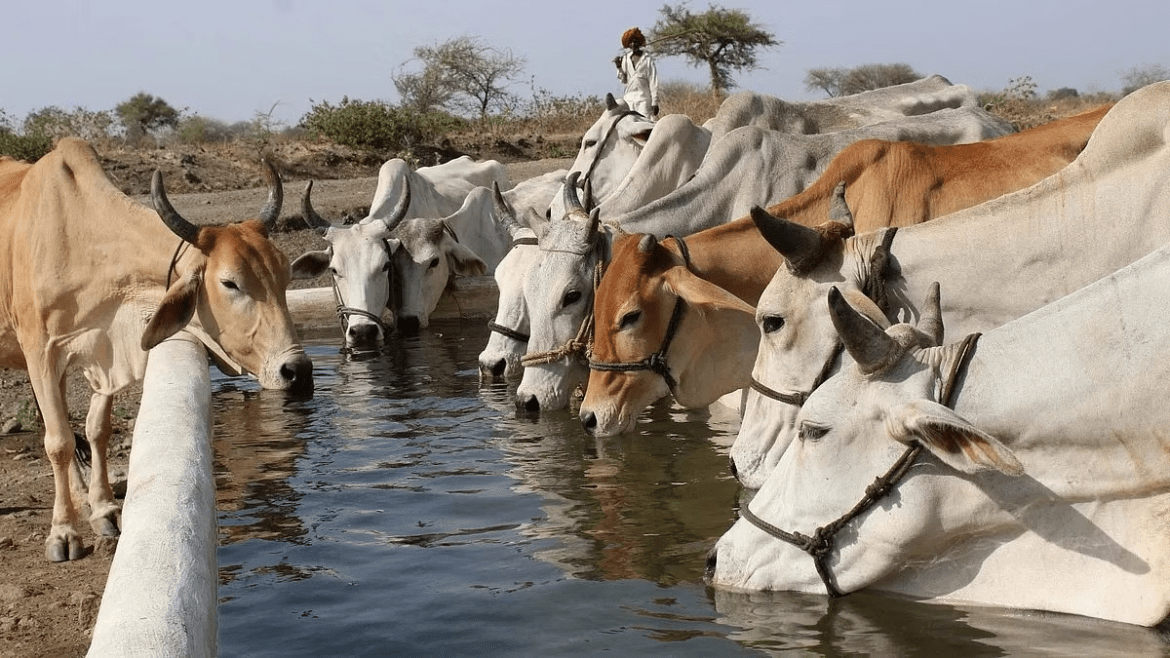AI Generated Summary
- In a bid to combat the devastating impact of livestock diseases on agricultural economies, the Punjab government is actively engaging in discussions with Brazil, renowned for its expertise in animal health.
- As stakeholders on both sides gear up for forthcoming deliberations, the shared vision of mitigating livestock ailments stands as a testament to the power of international cooperation in confronting agricultural challenges.
- Angelo de Queiroz Mauricio, agricultural attaché at the Brazil embassy in New Delhi, shed light on the proposed initiatives during discussions with key stakeholders in Punjab.
In a bid to combat the devastating impact of livestock diseases on agricultural economies, the Punjab government is actively engaging in discussions with Brazil, renowned for its expertise in animal health. This collaborative effort aims to mitigate the adverse effects of ailments that not only pose a threat to farm incomes but also exacerbate rural distress.
The urgency of such cooperation was underscored by the lumpy skin disease (LSD) outbreak that struck India in 2022, claiming the lives of over 200,000 cows and significantly impairing milk production. This setback prompted a crucial dialogue between Punjab officials and Brazilian representatives, with a focus on scientific collaboration to monitor, prevent, and manage disease outbreaks effectively.
Angelo de Queiroz Mauricio, agricultural attaché at the Brazil embassy in New Delhi, shed light on the proposed initiatives during discussions with key stakeholders in Punjab. He highlighted the prospect of joint research endeavors with prominent institutions such as Punjab Agricultural University, GADVASU, and Lovely Professional University. These ventures aim not only to monitor disease occurrences but also to develop strategies for prevention and outbreak management.
Moreover, the partnership extends to exploring the development of Ayurvedic medicines tailored for veterinary purposes—an innovative approach that merges traditional knowledge with contemporary scientific advancements.
The significance of this collaboration is magnified against the backdrop of India’s burgeoning demand for milk and dairy products. As the world’s largest producer of milk, India relies heavily on its vast population of livestock to meet domestic consumption needs. However, challenges such as the LSD outbreak have impeded production, necessitating proactive measures to safeguard the dairy industry’s stability.
Lovely Professional University, which boasts memorandums of understanding with 11 Brazilian universities, expressed keen interest in further cementing bilateral cooperation. Their spokesperson emphasized the promising outcomes of recent discussions and expressed optimism about swiftly translating deliberations into actionable plans.
While queries directed at key academic and governmental institutions remained unanswered at the time of reporting, the gravity of the situation cannot be overstated. The economic toll of livestock diseases, as evidenced by the staggering losses incurred due to the LSD outbreak, underscores the imperative for collaborative interventions.
Financial backing for research endeavors will be a joint endeavor between Brazil and Punjab, with a commitment to establishing a robust framework for project development and execution. A dedicated working group, spearheaded by Punjab’s Minister of Investment Promotion, Anmol Gagan Maan, is poised to facilitate the implementation of joint initiatives aimed at bolstering agricultural resilience.
As stakeholders on both sides gear up for forthcoming deliberations, the shared vision of mitigating livestock ailments stands as a testament to the power of international cooperation in confronting agricultural challenges. Through collective action and scientific innovation, India and Brazil are poised to chart a path towards a more resilient and sustainable future for the dairy industry.




